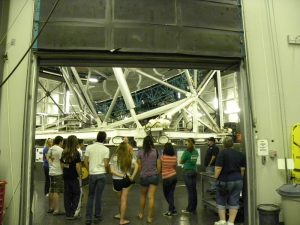
What are the degree requirements and verification required to become an astronomer?
There are now diverse career trajectories for astronomers inside and outside of academia. Please check out this website compiled by the American Astronomical Society to see what other jobs are available to astronomers. To answer your question I will focus on a traditional career track inside of academia since that is what people think of as an astronomer.
Astronomy research is heavily relying on Physics and Math. Astronomers also work with computers and electronics, so good computing and programming skills are required to be successful in astronomy. A typical path that most of astronomers have been taking is to spend 4 years in college to get a Bachelor’s degree in Science (B.S.) with an emphasis on Physics, Astronomy, Computer science, or Math, then 5-6 years in graduate school to receive Philosophy of Doctorate (Ph.D.) in either Astronomy, Astrophysics, or Physics. Some graduate schools offer Master’s in Science (M.S.) degree when you pass the PhD qualification exam with one or two scientific journal publications, while you are still pursuing for PhD.
Only a small number of jobs (mainly in the field of astronomy education and public outreach) are available to people with Master’s degree. Unless you have a specific career in mind holding a PhD is necessary for most of academic jobs in astronomy. Some astronomers build their own instruments. Having some backgrounds in electronics, material fabrication, mechanical engineering, programming, and other related skills can be pretty handy, but you don’t need to have a degree in those fields.
Good writing and communication skills are needed, since astronomers share their recent research by publishing articles on scientific journals and presenting at conferences and meetings. Again, there is no need to get a degree in writing or communication.
To summarize, the must-have degrees to become an astronomer are B.S. (Bachelor of Science) and Ph.D. (Philosophy of Doctorate) in either Astronomy, Astrophysics, or Physics.
Dr. Hwihyun Kim
UT Austin
